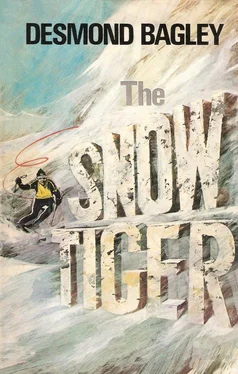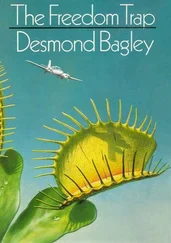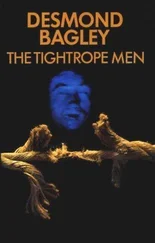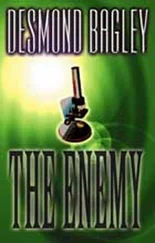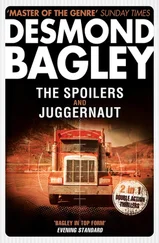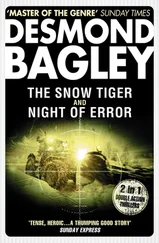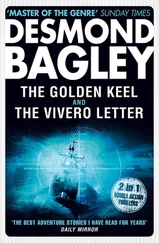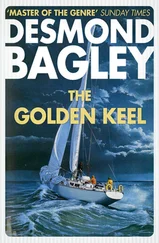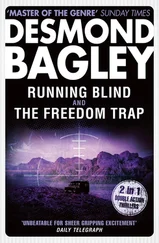‘This is Ruihi, my daughter-in-law,’ said Turi.
McLean’s eyes lit up as he bit into a cake. ‘Good,’ he said rather indistinctly. ‘An old widower like me doesn’t often get the chance o’ real home cookin’.’
Ruihi smiled at him and went away, leaving the tray, and Turi and McLean spent a few minutes chatting over the tea and cakes. Presently McLean helped himself to a second cup of tea, then waved his arm towards the valley. ‘Those dead bodies you were speakin’ of a while back — how many were there?’
‘Seven,’ said Turi. ‘A whole family — the Baileys. There was a house there. It was completely destroyed.’ He told McLean of how he had helped his father dig.
McLean shook his head. ‘Now that’s a terrible thing. Not somethin’ for a laddie of twelve to be doin’.’ He finished the tea and looked at his watch. ‘Well, this isna’ tyin’ down yon generator.’ He took the nuts from his pocket and picked up a spanner. ‘I’ll secure it.’
Turi cocked his head on one side. He had heard a noise and, for a moment, thought it was the aeroplane that had been flying overhead. Then he heard and recognized the eerie bass hum and a higher whistling sound, something he had not heard since 1912.
He grabbed McLean’s arm. ‘Too late. Into the house — quick.’
McLean resisted. ‘What the hell! I’ve got to—’
Turi hauled at him. ‘The snow is coming,’ he yelled.
McLean looked at the old man’s contorted face and believed him instantly. They both ran to the back door, which Turi immediately slammed closed and locked as soon as they were inside. He took a step forward. ‘The children...’
McLean saw Turi’s mouth opening and closing but he did not hear the end of that sentence because the noise reached a deafening pitch.
Then the avalanche hit.
McLean had heard the barrage which opened the battle of El Alamein and that, in his opinion, had been the ultimate in noise, even exceeding that of the boiler shop where he had been apprenticed on the Clyde. He now knew with a depressing certainty that he had a new measure of the ultimate.
The fundamental note was low cycle, deep in the bass — a sound which grabbed his stomach as though he was being squeezed by a giant hand. He opened his mouth and air was expelled forcibly from his lungs as his diaphragm kicked sickeningly. Superimposed on the bass was a whole series of high-pitched whistles of ear-piercing intensity, tones which collided with each other to produce strange and eerie harmonics. He had the impression that the sound entering his ears was compressing his brain.
The old house quivered on its foundations. The light had suddenly gone as though by an eclipse of the sun, and all he saw through the window in front of him was a dirty grey blur. The house lurched as it received two swift buffets and the windows smashed inwards. He heard no sound of breaking glass.
Fine snow dust jetted into the room through the broken panes as though squirted from a great hose pipe. The dust hit the wall to one side of McLean and sprayed outwards, and then it stopped coming in as suddenly as it had begun. Instead there was an opposite reaction, although not as strong. Air was sucked from the room, taking some of the snow with it.
It seemed to McLean that he had been standing there for an eternity. He was wrong, of course, because, from first to last, the avalanche swept by the rock of Kamakamaru in under twenty seconds. When it was over he stood as still as a statue. He was covered from head to foot with fine snow powder which gave him the appearance of a ghost. There was a ringing sound in his ears and he heard distant cries which seemed to be coming from as far away as the town.
Turi Buck stirred. Slowly he lifted his hands and put them to his ears, and he shook his head as though to assure himself that it would not fall off his trunk. He said, ‘It is over.’ His voice crashed out unnaturally loudly as it reverberated in the cavities of his skull. He turned his head and looked to McLean, saying again, ‘It is over.’
McLean did not move so Turi put out his hand and touched him gently on the arm. A shudder went through McLean and he looked at Turi. His eyes were glazed and staring. Turi said, ‘It’s finished, Jock.’
McLean saw Turi’s lips moving and heard his voice coming as though from a long way off, almost drowned out by the persistent buzzing in his ears. He frowned stiffly and deep cracks appeared in the powdering of snow that covered his lean face, accentuating the grooves that ran from the base of his nose to the corners of his mouth. He swallowed convulsively and his hearing improved. The distant cries he had heard before became louder, shrilling in his ears almost like the noise of the avalanche.
Every child in the house was screaming.
‘The children,’ said Turi. ‘We must see to the children.’
‘Yes,’ said McLean. His voice came out creakily. He looked down at his hands and saw that he was still holding four steel nuts in his left hand and a spanner in his right hand. He took a deep breath and looked at Turi again. ‘You’re bleeding,’ he said.
The cut on Turi Buck’s face, caused by a fragment of flying glass, was the only physical wound suffered by anyone in the house. Psychic wounds were something else again.
Other houses in the valley were not as lucky.
Matt Houghton was confident he had nothing to fear from any snow falling down the west slope. His house was built on the other side of the river and a considerable way up the east slope so that it had a commanding view of the valley. The view from his front porch was a source of considerable satisfaction to Matt Houghton and it was his habit, on fine summer days, to sit there and drink beer in the evenings. He had a streak of vanity and, since his election as mayor of Hukahoronui, he liked to think he was overlooking his kingdom. To his mind, the view from the house added two thousand dollars to the value of the property.
Not that he was sitting on his front porch this Sunday morning. For one thing, it was too cold, and for another, the porch was cluttered with hastily packed suitcases brought by his unexpected visitors. His wife, Mamie, was in the kitchen making gallons of tea and cutting piles of sandwiches, and he was playing the genial host.
‘It’s so very good of you to have us here,’ said Mrs Jarvis tremulously. Mrs Jarvis was the oldest person in Hukahoronui. She was eighty-two.
‘No need to thank me.’ Houghton laughed jovially. ‘I’m only doing it to get your vote in the next election.’
She looked at him uncertainly, then said, ‘Do you think we’re safe here?’
‘Of course we’re safe,’ he assured her. ‘This house has been here a long time — second oldest in the valley. It’s not been knocked down by an avalanche yet, so I can’t see it happening now.’
Sam Critchell, sitting in a big over-stuffed armchair, said, ‘You never know. Avalanches can do funny things.’
‘What do you know about avalanches, Sam?’ Houghton’s voice was scornful.
Critchell placidly continued to fill his pipe with liver-spotted hands. ‘I’ve seen a few.’
‘Where?’
‘At the end of the war I was in the mountains back of Trieste. There were a lot of avalanches that winter. They used the army for rescue work.’ He struck a match. ‘I saw enough to know that avalanches can be damned unexpected.’
‘Well, if I thought this house wasn’t safe I wouldn’t be here, would I?’ demanded Houghton rhetorically.
A long plume of smoke jetted from Critchell’s lips. ‘Neither would I. All I said is that avalanches can do funny things.’
A tall, stringy woman walked over to Houghton and he took the opportunity to escape this pointless conversation. ‘Well, how are things, Mrs Fawcett?’ he asked heartily.
Читать дальше
Конец ознакомительного отрывка
Купить книгу
